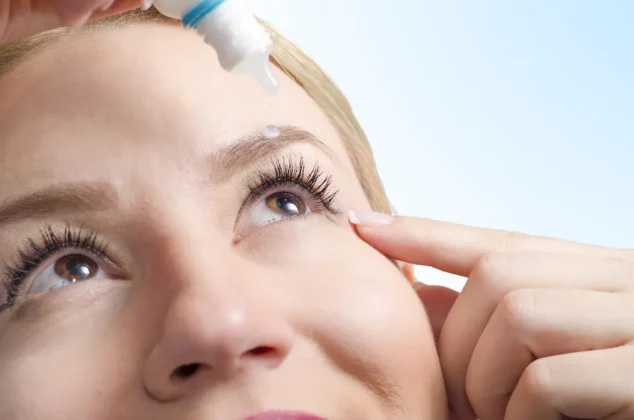Goodbye Glasses, Hello Clarity! You’ve taken the leap with ICL surgery to embrace a life without the constant tug of spectacles. But, as with any grand adventure, the journey has just begun. Navigating the initial days post-surgery is crucial for optimal results. Don’t fret; we’ve got your back! Dive into this guide as we unravel the essential aftercare tips for a seamless recovery post-ICL surgery, ensuring your eyes remain as sparkling as your newfound vision. From immediate sensations to outdoor excursions, we’re covering it all. Ready? Let’s venture into the world of ICL aftercare!
Contents
Understanding ICL Surgery
Implantable Collamer Lens (ICL) surgery, often heralded as the next-generation solution for vision correction, is rapidly gaining popularity among those eager to bid adieu to their glasses or contact lenses. But what exactly is this procedure?
In its essence, ICL is akin to placing a contact lens inside the eye, rather than on its surface. Made from a biocompatible material called Collamer, this lens is carefully positioned between the iris and the natural lens of the eye, ensuring precision in vision correction. The beauty of ICL is that it’s a reversible procedure, meaning the lens can be removed or replaced if necessary.
The entire procedure is quick, typically spanning just 20-30 minutes, with immediate improvements in vision. As minimally invasive as it is, the recovery period is relatively short. However, to harness the full potential of this surgical marvel, it’s imperative to follow the aftercare guidelines diligently.
The First 24 Hours Post-Op
Stepping out of the operating room post-ICL surgery, the world may appear in a new, clearer light. However, the initial 24 hours are crucial in setting the stage for a seamless recovery. Here’s what to expect and how to navigate this initial phase:
- Immediate Sensations: It’s common to experience a mild stinging or burning sensation in the eyes immediately post-surgery. There may also be a slight blurriness, but this should clear up within a few hours as the eye adjusts to its new lens.
- Discomfort Management: While ICL surgery is relatively pain-free, some patients may feel a bit of discomfort. Over-the-counter pain relievers, as prescribed by the surgeon, can be taken. Cold compresses can also provide relief but ensure they’re clean and used gently.
- Protective Eyewear: After the procedure, you’ll be given protective shields or goggles. Wear them, especially when sleeping, to prevent any accidental rubbing or pressure on the eyes.
- Light Sensitivity: Bright lights might seem glaring, and there’s a possibility of seeing halos around them. It’s advisable to rest in a dimly lit room and avoid direct exposure to screens or bright lights.
- Limit Physical Activity: While the urge to jump back into daily life might be strong, it’s essential to take it slow. Avoid any strenuous activities, bending over, or lifting heavy objects. These can increase eye pressure and hinder healing.
- Eye Drops: Your surgeon will prescribe antibiotic and anti-inflammatory eye drops. Ensure you administer them as instructed to prevent infection and reduce inflammation.
Remember, the first day is all about giving your eyes the rest they deserve. While the procedure’s effects might be exhilarating, it’s essential to be gentle with yourself and your eyes, laying the groundwork for the days to come.
Keeping Your Eyes Clean and Safe After ICL Surgery
 As the healing process takes its course, the environment around you plays a critical role in ensuring your eyes remain infection-free and heal optimally. Here are some aftercare tips to ensure cleanliness and safeguard your eyes in the days following ICL surgery:
As the healing process takes its course, the environment around you plays a critical role in ensuring your eyes remain infection-free and heal optimally. Here are some aftercare tips to ensure cleanliness and safeguard your eyes in the days following ICL surgery:
- Steer Clear of Water: For the first-week post-surgery, avoid getting your eyes wet. This means skipping face-washing routines that involve splashing water and being extra cautious during showers. Always keep your eyes closed when rinsing your hair.
- Dodge the Dust: If stepping out is unavoidable, it’s paramount to protect your eyes. Use wraparound sunglasses or protective goggles to shield them from airborne particles.
- Limit Outdoor Activities: While it’s beneficial to get some fresh air, limit your time outside during the first week. Activities that stir up soil, like gardening, should be postponed, as they can introduce irritants to the eye.
- Goggle Up: If your job or daily activities involve exposure to dust, wind, or bright sunlight, wearing goggles becomes non-negotiable. They provide a protective barrier, ensuring no foreign particles compromise the surgical site.
- Avoid Touching Your Eyes: Your hands come into contact with countless surfaces throughout the day. Refrain from rubbing, touching, or itching your eyes to minimize the risk of introducing any contaminants.
- Follow a Sterile Cleaning Regime: If your eyes feel dirty or gritty, use sterile eyewipes or boiled-cooled water on a clean cotton pad to gently cleanse the area. Always pat dry with a clean, lint-free cloth.
As the saying goes, “Better safe than sorry.” And in the case of ICL surgery aftercare, these precautions will set you on a path to a smooth and uncomplicated recovery.
Long-term Eye Aftercare Tips Post-ICL Surgery
Eve n after the immediate recovery phase post-ICL surgery, it’s crucial to remain vigilant about the health of your eyes. Here’s a guide to nurturing your eyes in the long run:
n after the immediate recovery phase post-ICL surgery, it’s crucial to remain vigilant about the health of your eyes. Here’s a guide to nurturing your eyes in the long run:
- Regular Eye Check-ups: Schedule regular visits with your ophthalmologist to monitor the condition of the implanted lens and the overall health of your eyes.
- Protect from UV Rays: Prolonged exposure to UV rays can harm your eyes. Always wear sunglasses with UV protection when out in the sun, even on cloudy days.
- Stay Hydrated: Drinking adequate water daily supports eye health by preventing dryness and aiding in detoxification.
- Healthy Diet: Incorporate foods rich in vitamins C and E, zinc, lutein, and omega-3 fatty acids. Foods such as green leafy vegetables, fish, eggs, nuts, and citrus fruits can help in maintaining good eye health.
- Signs to Watch Out For: While complications post-ICL are rare, it’s essential to be aware of any unusual symptoms. Persistent pain, sudden vision changes, increased sensitivity to light, or excessive redness should prompt an immediate consultation with your ophthalmologist.
- Limit Screen Time: With the digital age in full swing, our eyes are constantly exposed to screens. Ensure you follow the 20-20-20 rule: Every 20 minutes, look at something 20 feet away for at least 20 seconds. This reduces eye strain and fatigue.
- Use Lubricating Eye Drops: If you experience occasional dryness, using preservative-free lubricating eye drops can offer relief. However, always consult with your eye doctor before introducing any new drops.
Long-term care post-ICL surgery is a continuous commitment to safeguarding and cherishing the gift of clear vision. Be attentive, and proactive, and enjoy a life with optimal eye health!
Activity Restrictions and Recommendations
Post-ICL surgery, the focus is on ensuring a swift and complication-free recovery. Here’s a quick rundown of activities to be cautious of and a suggested timeline for reintroduction:
- Physical Exertion: Avoid strenuous activities such as gymming, jogging, and running for at least a week.
- Swimming: Pools, lakes, and any other water bodies can introduce contaminants. It’s best to avoid swimming for a minimum of one week post-surgery.
- Light Activities: Activities like walking or basic home workouts can be resumed after 3-4 days, provided there’s no discomfort.
- Intense Workouts: Gym enthusiasts can gradually get back to their routines after a week, starting with low-intensity exercises and progressively increasing the intensity.
- Swimming: After a week, you can dive back into the pool, but remember to wear protective goggles for an additional week to shield your eyes.
- General Recommendation: While you gradually reintroduce activities, always be attentive to how your eyes feel. Any discomfort should be taken seriously, and when in doubt, consult your ophthalmologist.
Stay active but be prudent, ensuring your eyes heal optimally while you get back to your dynamic life!
Conclusion
The journey to clear vision doesn’t end immediately after ICL surgery; the aftercare steps you take during recovery are pivotal to ensuring optimal results after ICL surgery. With the right aftercare, you’ll be well on your way to experiencing the world with enhanced clarity. Remember, while the newfound freedom of clear vision is exhilarating, ensuring its longevity requires diligence in post-operative care.
Are you looking for ICL surgery? Experience the freedom of clear vision with ICL Surgery at EyeMantra. Don’t let glasses or contacts hold you back any longer. Book your free appointment now at 9711116605 and step into a clearer future.



